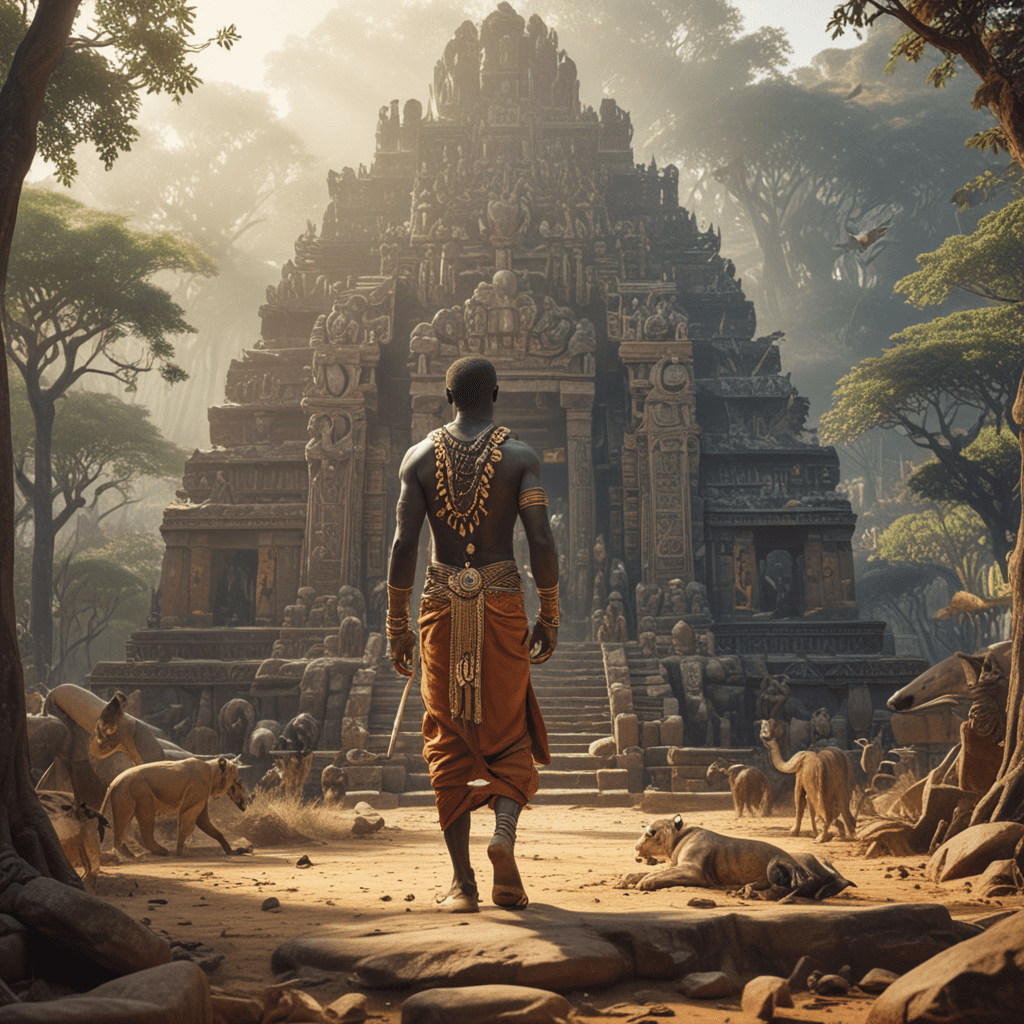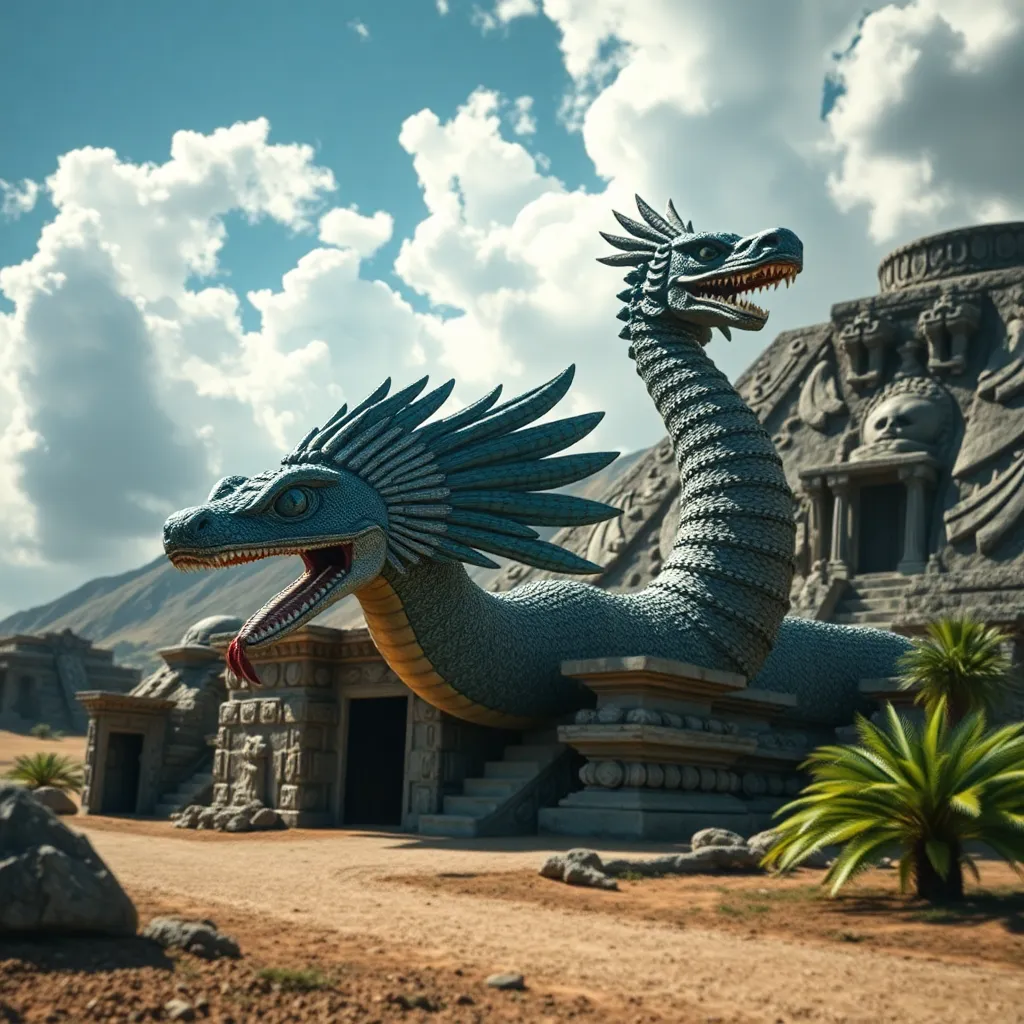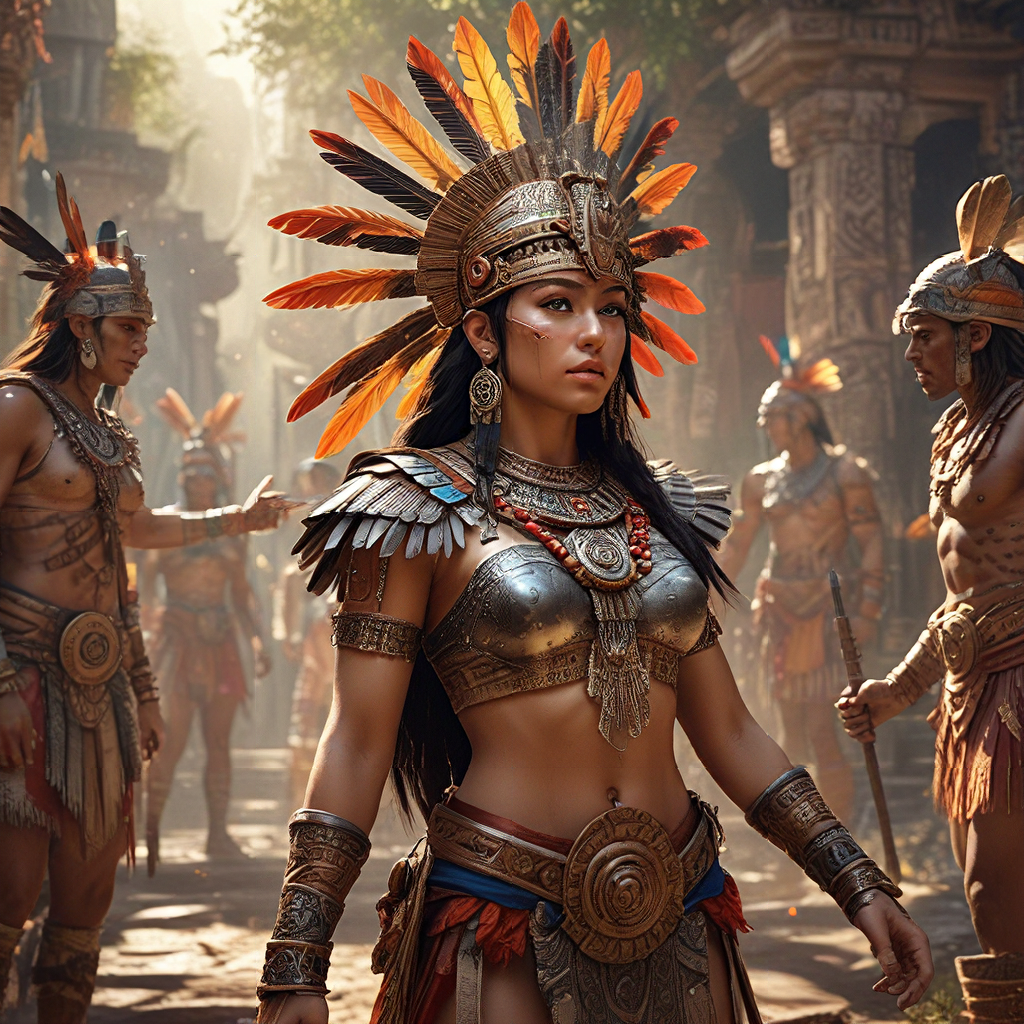Sacred Places in African Mythology
Africa, the cradle of civilization, is a continent teeming with profound historical and cultural significance. Its rich tapestry of myths and legends is interwoven with awe-inspiring sacred places that hold deep spiritual resonance for its people. These sanctuaries, both natural and man-made, have shaped the beliefs and rituals of generations, serving as epicenters of religious practices, storytelling, and reverence for the divine.
The River Niger
Flowing through the heart of West Africa, the Niger River holds a paramount place in African mythology. It is revered as a symbol of life and fertility, its name originating from the phrase "niger ru," meaning "great river" in the Fula language. Ancient legends depict the Niger as a celestial serpent who brought water to the parched lands, nurturing life and providing sustenance to the people living along its banks.
The Nile River
Widely regarded as the lifeblood of Egypt, the Nile River has played a pivotal role in shaping ancient Egyptian civilization and its spiritual beliefs. The ancient Egyptians believed that the Nile was a manifestation of the river god Hapi, who controlled the annual flooding that brought abundant harvests and sustained the kingdom's prosperity. Temples were built along the river, and festivals were held to honor Hapi and ensure his continued benevolence.
Mount Kilimanjaro
Rising majestically above the East African plains, Mount Kilimanjaro is the highest mountain on the African continent and the tallest freestanding mountain in the world. In the mythology of the Chagga people, who have inhabited the mountain's slopes for centuries, Kilimanjaro is believed to be the residence of Ruwa, the powerful and revered sky-god. They regard the mountain as a sacred site and make yearly pilgrimages to its summit to pay homage to Ruwa and seek his blessings.
6. The Sahara Desert
Stretching across vast expanses of North Africa, the Sahara Desert is a realm shrouded in mystery and spiritual significance. In ancient Egyptian mythology, it was believed that the goddess Ma'at, who personified truth, justice, and balance, had her dwelling in the western regions of the desert. The Sahara was also considered a place of purification and renewal, where the dead could embark on their journey to the afterlife.
7. The Kalahari Desert
Lying in southern Africa, the Kalahari Desert holds a deep spiritual connection for the indigenous San people. They regard the desert as a sacred landscape, where ancient rock art and stories depict the creation of the world and the relationship between humans and the divine. The San believe that their ancestral spirits reside in the desert and that it possesses a powerful energy that connects them to the past, present, and future.
8. The Congo Rainforest
Encompassing the vast central region of Africa, the Congo Rainforest is one of the largest and most diverse tropical rainforests in the world. In the belief systems of the Bantu peoples who have inhabited the rainforest for centuries, it is considered a sacred realm, where spirits and ancestors dwell and the natural world holds immense spiritual significance. Traditional rituals and ceremonies are performed in the rainforest to honor the spirits and seek their guidance and protection.
9. The Ethiopian Highlands
Rising in eastern Africa, the Ethiopian Highlands are home to some of the oldest Christian communities on the continent. The region is deeply intertwined with religious traditions and legends. According to Ethiopian mythology, Mount Entoto, located within the highlands, was once the dwelling place of angels, and the Ark of the Covenant is believed to be housed in the Church of St. Mary of Zion in Axum. The highlands are considered a sacred place for pilgrimage, where devout Christians gather to connect with their spiritual roots.
10. The Zambezi River
Flowing through southern Africa, the Zambezi River is revered as a sacred water body in the cultures of the people living along its banks. The river is home to the legendary Victoria Falls, known locally as Mosi-oa-Tunya, meaning "the smoke that thunders." In the mythology of the Tonga people, the falls were created by the god Nyami Nyami, who is believed to inhabit the river and control its flow. The Zambezi is regarded as a symbol of life, power, and fertility, and it plays a central role in religious rituals and ceremonies.
FAQs:
Q: Which sacred place is considered the residence of the sky-god Ruwa?
A: Mount Kilimanjaro
Q: What river is believed to be the manifestation of the river god Hapi?
A: The Nile River
Q: What desert is associated with the goddess Ma'at?
A: The Sahara Desert
Q: Where do the San people believe that ancestral spirits reside?
A: The Kalahari Desert
Q: What is the significance of Victoria Falls in the mythology of the Tonga people?
A: It was created by the god Nyami Nyami and is believed to be his abode.



